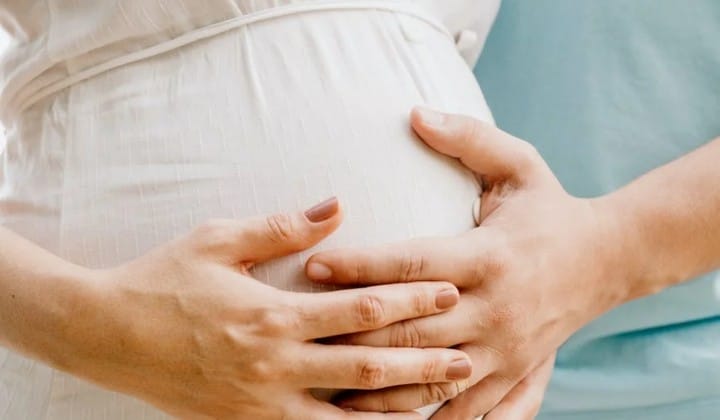Consanguineous Marriage & A Baby’s Genetics: A Higher Risk Of Inherited Disease [OPINION]
In Islam, consanguineous marriage is allowed and not prohibited but it is not encouraged.

By
Nasuha Syahira Sanusi
Student, Faculty of Medicine & Health Sciences, Universiti Sains Islam Malaysia (USIM)
Consanguineous marriage is a marriage between two individuals who are related as cousins or close relatives.
This tradition is quite common, highly practiced and socially favoured especially in North Africa, West Asia and South India.
Looking on the positive side of why this marriage is culturally favoured, sociological studies showed that consanguinity strengthened family relationships and there was higher compatibility between husband and wife, as well as other family members.

Why it doesn’t work in the first place
However, as the maxim goes, everything in nature is bipolar, or has a positive and negative pole. Genetically, consanguineous marriage highly induced the expression of autosomal recessive diseases and syndromes that will be inherited to the offspring, countering the social and cultural benefits.
The offspring from a marriage will carry identical gene copies from both parents. Thus, if both parents have diseases that can be inherited, for instance sickle cell anemia, cystic fibrosis or even thalassemia, there will be higher risk for the newborns to inherit them.
Infant mortality and birth defects rates has a double increase compared to nonconsanguineous marriage.
The closer the biological relationship between parents, the greater is the probability that their offspring will get the recessive genes.
Consanguineous marriage also increases the incidence of multifactorial disease such as diabetes, hypertension, cardiac disease for instance atherosclerosis, obesity, and certain types of cancers such as breast cancer, blood cancer and list goes on. These may in turn affect the reproductive outcomes.
How are diseases inherited via consanguineous marriage and why is the risk for the infants to get affected doubled?
Generally, the offspring will get the identical gene from both parents; half from the father and the other half from the mother.
There are 22 pairs of autosomal chromosomes and 1 pair of sex chromosome (XY for boys and XX for girls). Autosomal recessive diseases are usually due to mutations, genetics, or even environment that will affect the sequence and structure of the autosomal chromosome.
Let’s take sickle cell anemia, a genetic disease of red blood cells, as an example.
Normally, red blood cells are discs like shaped , which gives them the flexibility to travel through even the smallest blood vessels. However, in sickle cell anemia, red blood cells have an abnormal crescent shape resembling a sickle. Sickle red blood cells are sticky, rigid and easily clump in the blood vessels.

This will lead to the blockage of blood supply from reaching the whole body. Lethargy, tired, muscle weakness, and severe pain are the common symptoms that can be shown in patient with sickle cell anemia.
How is sickle cell anemia inherited to the offspring? When both father and mother have sickle cell traits (as carriers), the chances of the offspring to have sickle cell anemia is 1 in 4 ,or 25% as there is a higher likelihood of having a child with a recessive condition.
According the Clinical Genetics Handbook, children of non-related couples (nonconsanguineous marriage) have a 2-3% chance of being born with a birth defect, and children of first cousins (consanguineous marriage) have a 4-6% chance.
Besides having higher risk to be inherited with certain diseases, another reason is consanguinity can reduce human antigen leukocytes (HLA) variants in human population.
Marrying someone that is close to us will reduce the variety of HLA. One of the main functions of HLA is as immune defensive mechanism.
HLA detects the antigen or bacteria that get invaded in our bodies. The more population of HLA variant that we have, the more our immune cells in our bodies ,the lower the risk for us to have a certain disease.
Thus, when there is low population of HLA variants, as in consanguineous marriage, the higher the chance for the offspring to get infected.
Even Islam doesn’t encourage it
In Islam, consanguineous marriage is allowed and not prohibited but it is not encouraged.
As Allah (SWT) says in Al Quran, Surah An Nisa ,verse 23:
“Also forbidden to you for marriage are your mothers, your daughters, your sisters, your paternal and maternal aunts, your brother’s daughters, your sister’s daughters, your foster-mothers, your foster-sisters, your mothers-in-law, your stepdaughters under your guardianship if you have consummated marriage with their mothers—but if you have not, then you can marry them—nor the wives of your own sons, nor two sisters together at the same time—except what was done previously. Surely Allah is All-Forgiving, Most Merciful”.
Allah has stated in Al-Quran, the prohibited group to marry and the people who are not allowed to be married. In Islam, marrying our own cousin does not go against the syariah law but it is not encouraged to do so as this practice can give negative impacts to the offspring genetically.
In short, consanguineous marriage has been proved to be one of the causes that contributes to increasing the number of inherited diseases in offspring. Couples who have a recessive trait disease and still want to have consanguineous marriage are advised to seek a doctor for screening test and premarital counselling.

Nasuha Syahira Sanusi is a second year student at the Faculty of Medicine & Health Sciences, Universiti Sains Islam Malaysia (USIM).
If you’d like to have your opinion shared on TRP, please send it via email at editorial@therakyatpost.com with the title “OPINION:” or through social media on TRP’s Facebook, Twitter, and Instagram.








